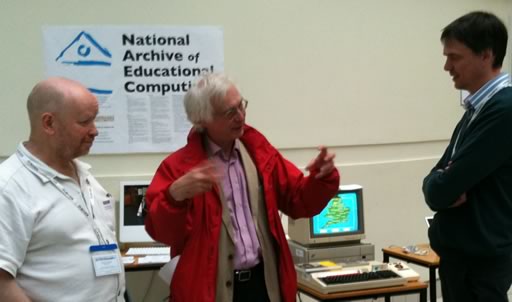All portfolio items
PhD supervisor for Kesiena Clement-Okooboh
| When |
Feb 01, 2011
to
Jul 31, 2013 |
|---|---|
| Where | Bolton |
(Words: 53 )
PhD supervisor for Lynn Campbell
| When |
Feb 04, 2011
to
Jul 31, 2013 |
|---|---|
| Where | Bolton |
(Words: 34 )
PhD Supervisor Workshop
| When | Feb 25, 2011 |
|---|---|
| Where | Bolton |
(Words: 18 )
Owers Lecture 2011
| When | Mar 24, 2011 |
|---|---|
| Where | London |
The 2011 Owers Lecture was titled 'The University Technology College - a basis for a manufacturing renaissance?'. Stephen Capper, Head of Sawyers Hall College, outlined the philosophical foundations of the University Technology College movement and explain the issues facing the development of a new UTC. Peter Mitchell, Chief Executive of the Baker Dearing Educational Trust, responded to Stephen's presentation, provoking a vigorous discussion with participants.
(Words: 95 )
Computing at School
| When | Mar 28, 2011 |
|---|---|
| Where | Chelmsford, Essex |
These are my slides.
(Words: 45 )
CAL '11
| When |
Apr 12, 2011
to
Apr 15, 2011 |
|---|---|
| Where | Manchester |
This was the paper proposal:
Ultraversity - the impact of online work-focussed learning on the lives of students three years after graduation
Abstract
The Ultraversity project was initiated by the learning technology research centre, Ultralab, based at Anglia Ruskin University, in 2003. It set out to develop a degree course to meet the needs of prospective students ‘for whom university did not fit’. Such prospective students’ concerns were hpothesised to range from difficulties with attendance at the place & time the university offered study, the duration of part-time attendance, the relevance of topics studied and the approach to learning and assessment. The Ultraversity design addressed these and other concerns. In 2006, 144 students graduated, having spent three years studying full-time while employed. The focus of their study was action for improvement in their own work.
In 2006 an exit survey was conducted to discover student attitudes and plans. In September 2009, three years after graduation, a further survey of these graduates was conducted to discover the nature of the impact on themselves, their families and their careers. The survey invited closed and open responses on a range of issues related to their history, expectations and outcomes. These included the facts about their position, their motivation, their judgements on effectiveness, impact on their life, change in job role since starting the degree, their judgement on the cause of such change, changes in practice, change in their workplace and their final observations / story.
25 students completed the 2009 survey. These respondents represented the cohort reasonably well in terms of age profile, geographical spread and gender. Although there are concerns that some of the respondents are ‘enthusiasts’, nevertheless a rounded set of views, both positive and negative, were reported.
The closed responses were analysed to prepare statistical reports of the responses and the open responses reviewed to identify themes and stories which cast light on participant’s experience. Some data from the 2006 survey was correlated with the 2009 survey.
The outcomes suggest that the degree award (like most high-level qualifications) realised the participants’ potential to perform at a high level, advanced their career prospects but in some cases disrupted family life. The experience for many is reported as transformational.
A short paper of the findings presented mainly in graphical form, together with one published in 2007, ‘Ultraversity Model for Work-Based Learning’, will be presented as a basis for dialogue with other researchers attending the conference, with the following questions to stimulate debate:
1. What are the moral issues related to the impact of online, work-focussed learning on student’s lives?
2. What lessons for other innovators are there?
3. Which of these outcomes are connected to this particular innovation and which can be explained by other factors?
References
Millwood, R., Powell, S., Tindal, I. (2007) Undergraduate Student Researchers – the Ultraversity Model for Work-Based Learning. Proceedings of the 2nd TENCompetence Open Workshop - Service Oriented Approaches and Lifelong Competence Development Infrastructures, pp. 157-166. UoB: Bolton.
Millwood, R., Powell, S., Tindal, I. (2008) Personalised Learning and the Ultraversity Experience. Interactive Learning Environments, Volume 16, Issue 1, pp. 63 - 81. Routledge.
Powell, S., Tindal, I., 2009. The Undergraduate Student as Action Researcher. University Vocational Awards Council Annual Conference, Higher Education – Skills in the Workplace: delivering employer-led higher level wok-based learning. York, England 13-14 November, 2008. University Vocational Awards Council: Bolton.
This was the workshop proposal:
The National Archive of Educational Computing
Abstract
The development of educational computing in the UK began at the moment it was realised that the computer offered a context for learning, and pioneers were exploring its educational use from as early as 1963 (Excell, 1993). Over the years this has resulted in the creation of a wealth of knowledge, experience and artefacts, based largely on investment from the government.
Starting in the early nineties, Ultralab, the learning technology research centre (Millwood, 2006), gathered a large collection of software, hardware and documents. Since Ultralab closed in 2006 this material has been in the care of Core Education UK (Millwood, 2009a) and is being developed to become the National Archive of Educational Computing (Millwood, 2009b). Many other individuals have also saved important material and would like to inform future generations by donating it to a secure and sustainable archive.
The aim of the National Archive of Educational Computing is to look at these materials and to represent them as an accessible and substantially complete collection of one nation’s pioneering and world-renowned innovation. No existing archive, library or museum has an adequate representation of this material and more importantly, very little in the way of narrative, interpretation or analysis is available to the interested public, the education professional or the policymaker. The fear is that in the headlong rush of technological development, the UK has forgotten earlier lessons that may inform its future decisions.
References
Excell, P. (1993). ‘A Pioneer Initiative in School Computing’ in RESURRECTION - The Bulletin of the Computer Conservation Society (N. Enticknap, Editor) Retrieved February 5, 2009 from: http://www.cs.man.ac.uk/CCS/res/res06.htm#h
Millwood, R. (2009a). Core Education UK home page. Retrieved 5 February 2009 from Core Education UK: http://www.core-ed.org.uk
Millwood, R. (2009b). National Archive of Educational Computing home page. Retrieved 5 February 2009 from National Archive of Educational Computing: http://www.naec.org.uk/
Millwood, R. (2006,). Ultralab home page. Retrieved 5 February 2009 from Ultralab: http://www.naec.org.uk/ultralab/ww3
The Workshop Activity
The activity of the workshop will be to identify gaps in the timeline developed for the archive through analysis, discussion and evaluation from participants using their own memory as a guide. In addition a brainstorm to generate key lessons learnt based on a revised timeline overview will support the archive to focus activity in the years to come. Artefacts including papers, software and hardware from the archive will be available to stimulate memory and provoke discussion
(Words: 1155 )
Learning Environments Research
| When | May 04, 2011 |
|---|
These were my slides.
(Words: 62 )
Learning on the Beach 2011
| When |
May 31, 2011
to
Jun 02, 2011 |
|---|---|
| Where | Mulranny, Mayo |
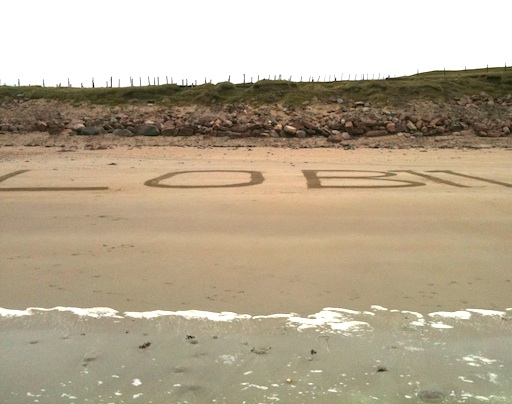
(Words: 53 )
EduSummit '11
| When | Jun 08, 2011 |
|---|---|
| Where | Paris |
I contributed to:
EDusummIT: TWG2
Student Technology Experiences
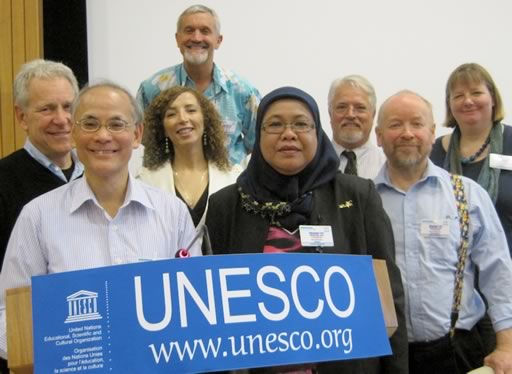
Hall Davidson, Kwok-Wing Lai, Ferial Khaddage, Gerald Knezek, Hajar Mohd Nor, Rowland Baker, Richard Millwood & Christine Bescherer
CALL TO ACTION
10th June 2011
Inspired by the growth of opportunity to learn informally through technology, this group’s call to action focuses on the relationship between these new informal learning opportunities and formal learning to maximise benefit to students.
1. Recognition of informal learning |
An Action Plan to Create a Policy for Maximizing Student Technology Experiences in Formal and Informal Learning |
|
Create a model policy involving a shared vision with all stakeholders to recognize the importance of informal learning. This policy could be implemented involving all stakeholders, so that it could be adaptable. This policy would help the adaptation of technology and the occurring change. Re-examining and re-visiting the policy and doing changes as needed. |
1.Identify stakeholders. Stakeholders may include parents, teachers, administrators, administrative board, PTA, students, funding agencies, institutions of higher education, unions. 2. Facilitate a meeting with stakeholder. The purpose of the meeting is to create a shared vision. The shared vision should include the relationship between formal and informal learning. The shared vision should include a plan for professional development. 3.The educational institution should create a Policy on formal and informal learning.
|
|
Both formal and informal learning will need to evolve to remain relevant to today’s digital learner. |
[No action defined as yet] |
|
Blend informal and formal education into the school settings. Training for teachers to implement the policy |
[No action defined as yet] |
2. Motivation for Informal Learning |
|
|
Learning outside school is motivated by influences beyond the school and teacher. This formal learning has something to gain from recognising the range of motivations driving student’s informal learning. Paramount amongst these is meaningfulness - the link to real world outcomes and and the learner’s self efficacy. This can be harnessed by introducing applied inquiry and problem based approaches to applications which are relevant to students. Other important motivations include curiosity, love of subject, solving problems, mystery, aesthetic pleasure, collaboration, disputation, personal growth, social development, anticipation of future economic success and achievement of recognition. All of these have a role to play in formal learning and can be supported by technology tools. |
Action: Identify a lesson taught in a previous year and create a new assessment rubric based on one of the following: personal growth of the student, or impact on a social issue, or reinforcement of an item of cultural importance. economics reasons, cultural factors and intrinsic love of learning.
Examples:
|
|
Learning should be curriculum-based but allow flexibility. |
Action: Promote intentional technology-based learning activities during out of school time (OST) that are coordinated in school time (IST)
Examples: Schools that “flip” their day to maximize time with the teacher in an interactive setting http://vodcasting.ning.com/video/the-flipped-classroom |
|
Learning via Application |
Action: Take a student-centred approach Encourage Inquiry and Problem-Based Learning
Examples: understanding what is behind the technology, how are the colors on the screens converted to digital numbers?
|
|
Pay attention to the culture of the school community. |
Action:
Examples:
|
3. Meta-Learning : Promote self-directed learning |
|
|
Promote flexibility in curriculum beyond basic skills Recognize Millennials learn differently from Baby Boomers or Gen-Xers (Whole Brain Learners) Recognize there is still a need for basic skills |
Action:
|
(Words: 1113 )
Computing at School 2011
| When | Jun 24, 2011 |
|---|---|
| Where | Birmingham |
These were my slides.
(Words: 42 )
Year 8 History at Sawyers Hall College
| When | Jul 15, 2011 |
|---|---|
| Where | Brentwood |
These were the slides I used:
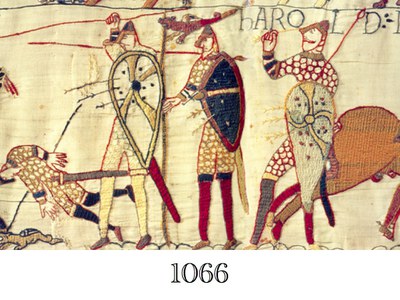
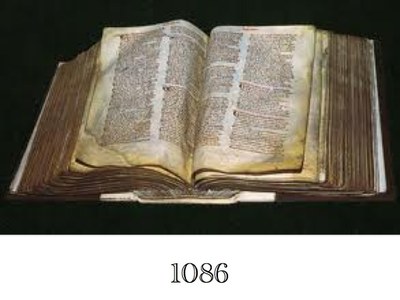
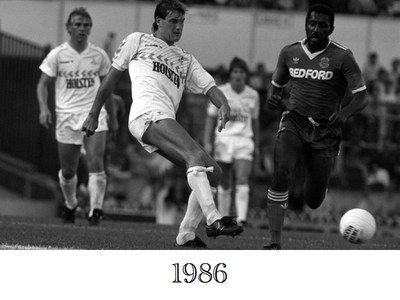
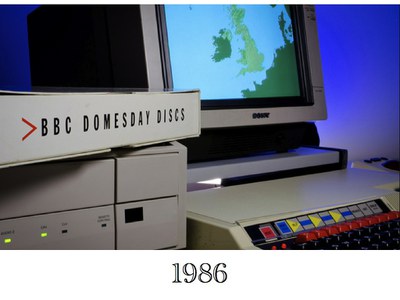
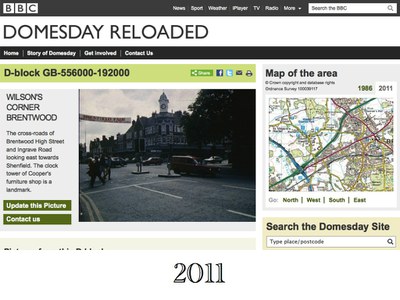
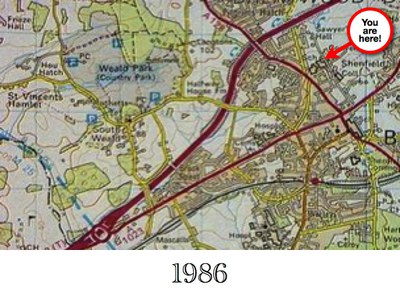
(Words: 79 )
AUCEi 2011
| When | Jul 17, 2011 |
|---|---|
| Where | Uxbridge |
These are my slides.
(Words: 47 )
PhD R1 Submission
| When | Sep 14, 2011 |
|---|
My R1 document contains a list of practice that might form part of a claim and a section to explain it. Supervision arrangements are also included. Once submitted to the Research Office, the Board of Studies for Research Degrees Standing Panel for our department must consider it for approval and make recommendations to the student and supervisors.
(Words: 85 )
PhD Supervision 1
| When | Oct 26, 2011 |
|---|---|
| Where | Bolton |
(Words: 55 )
PhD R1 approved
| When | Nov 23, 2011 |
|---|---|
| Where | Bolton |
(Words: 31 )
Collabor8 4 Change
| When | Jan 12, 2012 |
|---|---|
| Where | London |
These were the few slides I used to start the discussion.
(Words: 51 )
JISC-CETIS 2011
| When | Feb 23, 2012 |
|---|---|
| Where | Nottingham |
This was the mind-map of student retention I sketched, based on the discussion with Roz Fox, Bill Olivier, Niall Sclater, Mark Stiles and myself.
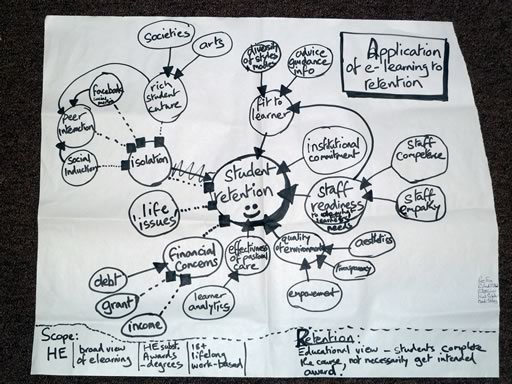
(Words: 60 )
PhD Supervision 2
| When | May 22, 2012 |
|---|---|
| Where | Bolton |
(Words: 41 )
Charities Learning Consortium
| When | Sep 08, 2012 |
|---|---|
| Where | London |
These are my slides.
(Words: 72 )
HoTEL - Holistic Approach to Technology Enhanced Learning
| When |
Sep 30, 2012
to
Sep 29, 2014 |
|---|---|
| Where | Uxbridge |
Here is my concept map of Learning Theory.
Project Description
Many studies on the role of ICT as a catalyst to change learning scenarios have failed to grasp relevant developments because they were working on the ground of a given set of technology options and codified learning models. If the areas of implicit, tacit and informal learning are not taken into consideration there is little chance to discover fundamentally new forms of learning through ICT.
The HOTEL Support Action aims to contribute to more effective, holistic and faster innovation cycles in European TEL, by increasing quality at the level of the cycle itself and of the different phases foreseen, that can be replicated in the future. Taking inspiration from the "Deming Cycle" model (Plan/Do/Check/Act) the HOTEL project focuses on the design, testing and validation of a new innovation working method for TEL (the HOTEL Innovation Cycle).
The most important element of impact of the HOTEL project will be:
- to establish a sustainable and replicable working paradigm (the HOTEL Innovation Cycle) to identify new models of learning through ICT, analyse the specific elements of innovation, assess the potential impact at the micro (technology-learning), meso (organizational-learning) and macro-level (policy); present results of the analysis and assessment to a community of innovators, researchers, decision makers; collect the results of field-test and in-depth contextualized proof-of-concept activities;
- set up three Learning Exploratorium Labs (one in higher education, one in a corporate setting, one within an international professional network focused on eLearning quality) where the Innovation Cycle can be tested and validated and that will represent a contribution to the European Innovation Partnership for TEL.
The focus of the support action is on adult learners and the ways they use or might use ICT to learn as a structured and fully organized activity, but also as a side effect of work and personal development in many fields.
(Words: 405 )
UVAC 2012
| When | Nov 01, 2012 |
|---|---|
| Where | York |
(Words: 27 )
Research Fellow School of Information Systems Computing and Mathematics Brunel University
| When |
Nov 05, 2012
to
Sep 30, 2013 |
|---|---|
| Where | Uxbridge |
(Words: 36 )
PhD Supervision 3
| When | Dec 13, 2012 |
|---|---|
| Where | Bolton |
(Words: 17 )
HE Summit - BETT 2013
| When | Jan 30, 2013 |
|---|---|
| Where | London |
These are the slides I prepared.
(Words: 39 )
PhD supervision 4
| When | Feb 21, 2013 |
|---|---|
| Where | Skype |
(Words: 22 )
PhD supervision 5
| When | Apr 04, 2013 |
|---|---|
| Where | Bolton |
(Words: 24 )
[C21] Report on good practice of innovative applications of learning theories in TEL
| When | Apr 30, 2013 |
|---|---|
| Where | Brentwood |
Aim: To clarify the accepted learning theories and explain their connection to theorists, disciplines and paradigms.
Reflection: Creating this document was a challenge for me in making sense of the diverse theoretical and conceptual positions and disciplinary backgrounds of learning theorists and to propose the application my own stakeholder analysis to innovations in technology enhanced learning - but it helped to bring all these things together for a real audience and with peer review.
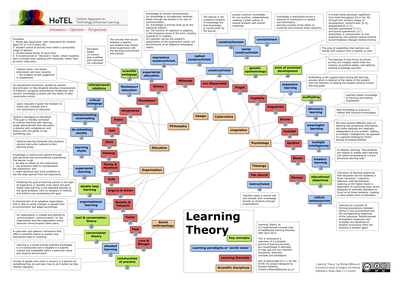
Contribution: I exercised analytical and visual design skills in the construction of the conceptual diagram and contributed the statements about the complex, contested and dynamic nature of learning theory. I also tidied up and commented on the stakeholder analysis for innovation designers. My part: 80%
Originality, impact and importance: This work is a new synthesis of key theorists and their ideas. It has been widely reported as part of the Hotel EU project and through my blog achieved considerable impact. It is intended to address an EU identified problem of technology innovators who are actively developing without a full understanding of the scope of learning theory and its problems in relation to technology. (Millwood, 2013)
The HoTEL Support Action aims to contribute to more effective, holistic and faster innovation cycles in European Technology Enhanced Learning (TEL), focusing on the design, testing and validation of a new innovation working method.
This document sets out the learning theories which influence innovators, identifies the new learning practices supported by TEL in higher education, professional learning and informal learning, and offers a multiple stakeholder analysis for TEL innovations in learning & education.
Educational innovators should benefit from this document as a guide to effective analysis, decision-making and implementation.
(Words: 332 )
Assistant Professor School of Computer Science & Statistics Trinity College Dublin
| When |
Sep 23, 2013
to
Sep 22, 2014 |
|---|---|
| Where | Dublin |
(Words: 38 )
PhD supervision 6
| When | Oct 14, 2013 |
|---|---|
| Where | Bolton |
(Words: 19 )
PhD supervision 7
| When | Dec 05, 2013 |
|---|---|
| Where | Bolton |
(Words: 26 )

